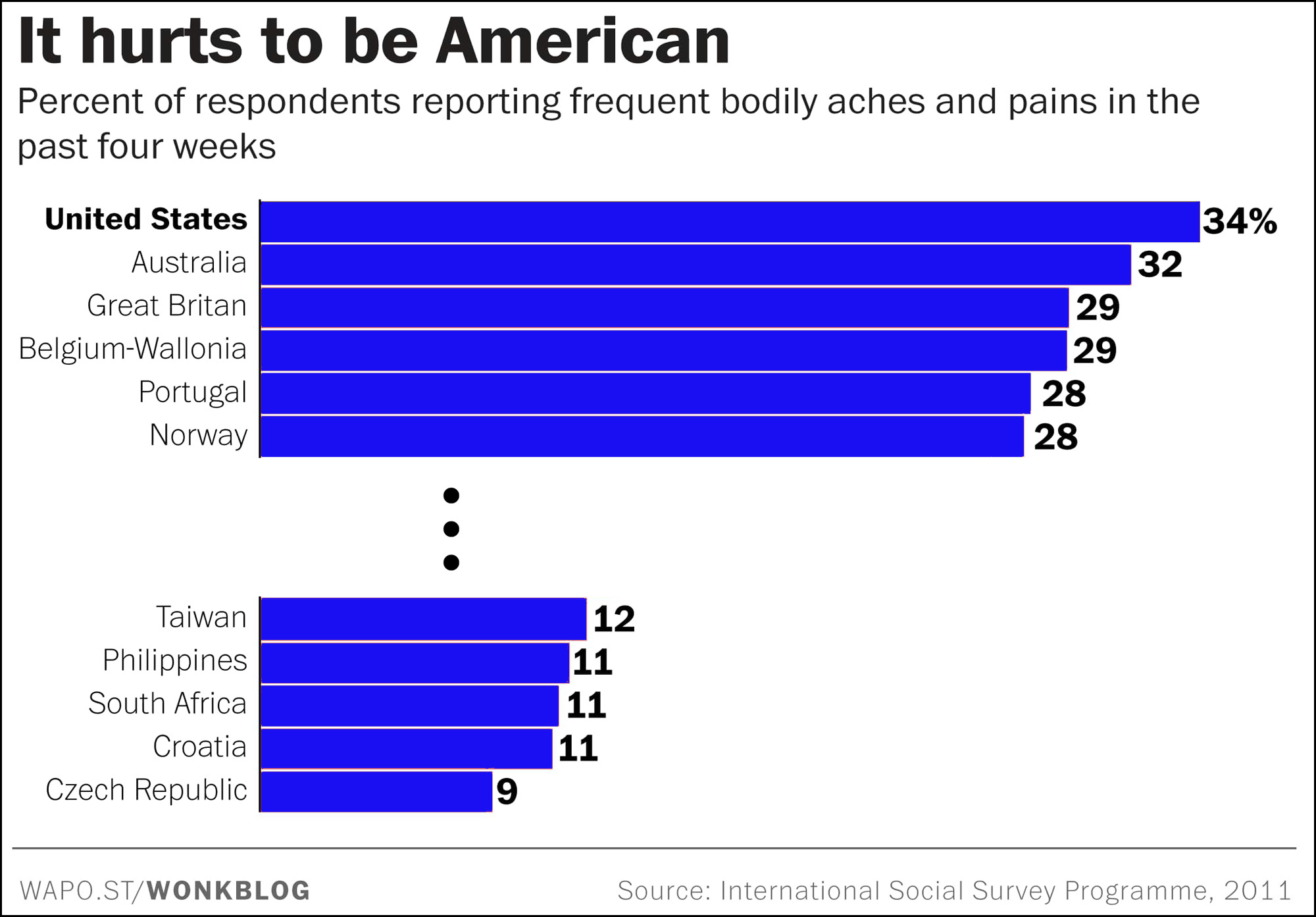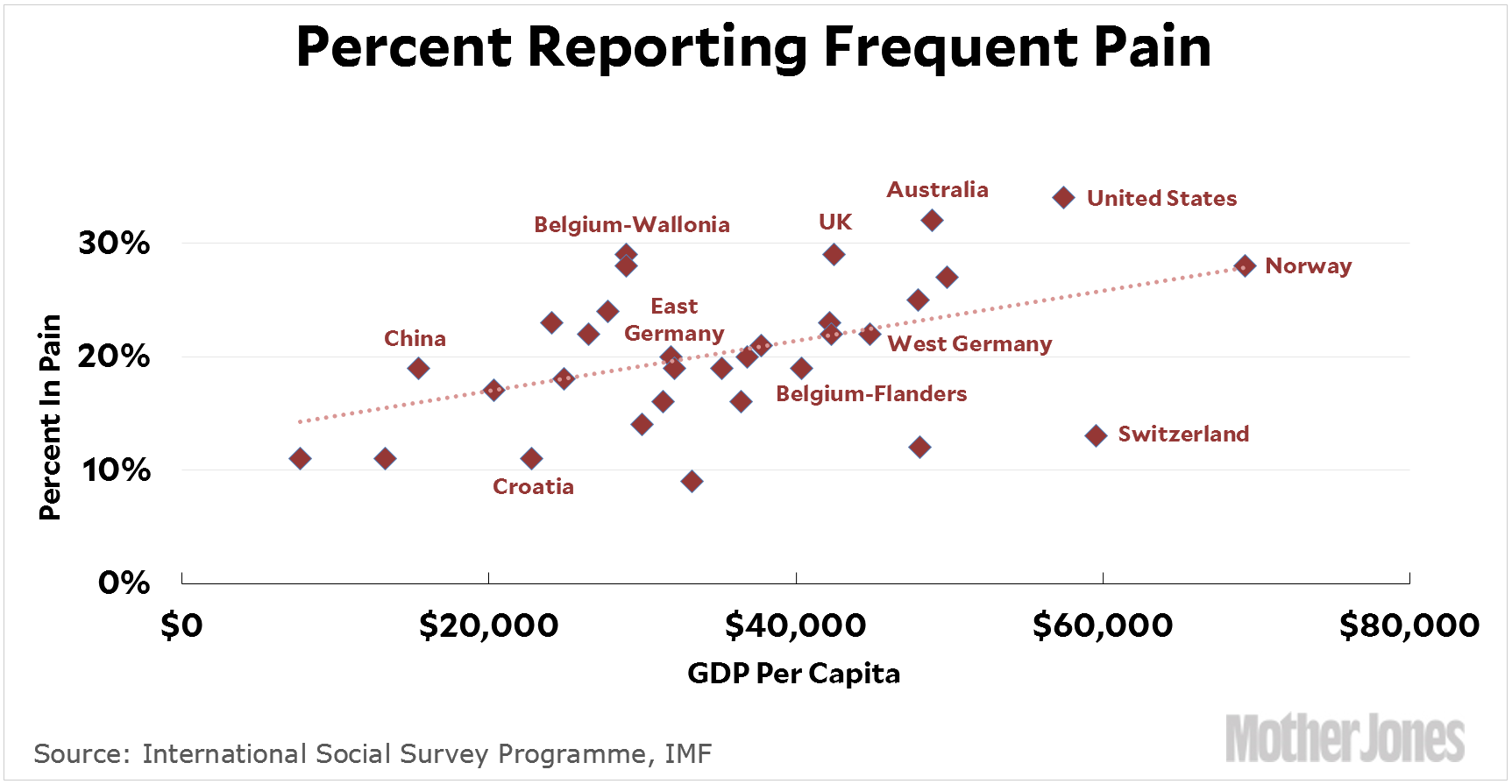Christopher Ingraham reports today on a new study that says Americans are less happy than they used to be and feel “bodily aches and pains” at the highest rate in the world:
Aware that some of this could be attributable to question translation issues or cultural differences (for instance, Americans may just be more predisposed to complain about pain than members of other nations), the authors ran the numbers controlling for age, gender, marital status, labor force status and education. The United States remained an outlier even when these factors were accounted for.
Hmmm. None of these things are actually related to either translation issues or cultural differences. Let’s go to the source and see what the authors think of possible language problems:
We have considered that and cannot entirely discount it; there must remain a chance that these subjective data on feelings of pain are, in some way, painting a misleading picture. However, a nation like the UK, which also uses English, and has a culture that is somewhat like that of the USA, shows up with similar pain levels — markedly below the American answers — to other west European nations.
That makes more sense. Weirdly, though, it’s just not true. Here’s the chart in Ingraham’s piece:

The biggest English-speaking countries in the world (Canada isn’t included for some reason) all score the highest, and both Australia and Great Britain are fairly close to the US, not to Western Europe. If anything, this supports the notion that language might have something to do with it. But there’s also this to consider:

In general, residents of richer countries complain more about pain than residents of poorer countries. This obviously doesn’t explain everything, but it makes the high ranking of the United States a little less surprising. I can think of a few possible explanations for this:
- Richer people have higher expectations. Minor aches and pains loom large when you have fewer other things to worry about.
- Sedentary lifestyles produce greater levels of pain.
- Richer people are bombarded with advertising for pain relief. Not only does this constantly remind them of pain, but it also reminds them that pain relief is easily available and therefore (in theory) treatable.
- Related: richer people are asked about their “pain scale” whenever they see a doctor or visit an emergency room.
- Richer people are just whinier.
- Poorer people are more likely to think of pain as just another one of those things that you bear in life. What’s the point of complaining?
On the “cultural differences” front, there are two interesting cases. The first is Belgium, where the survey team reports results separately for rich Flanders and poor Wallonia. The second is Germany, where they report separately for the regions that were formerly East and West. In both cases, the poor region reports either more pain or the same level of pain. They don’t follow the general trend at all. I have no idea what, if anything, to make of this, but maybe someone else has an idea.
NICKEL SUMMARY: I’m not sure what to think of this. But I’ll bet that the high level of pain reporting in the US is mostly related to something other than actual pain levels.

















